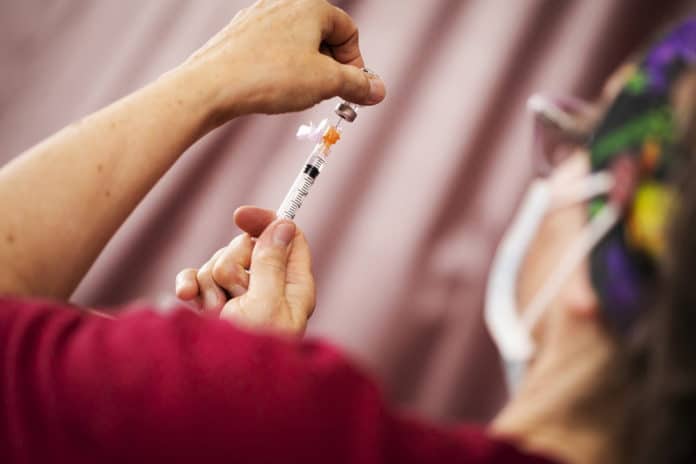The Ad26.COV2.S vaccine has demonstrated clinical efficacy against symptomatic COVID-19, including against the B.1.351. However, the immunogenicity of this vaccine in humans against SARS-CoV-2 variants of concern remains unclear.
A new study has found the effectiveness of Ad26.COV2.S vaccine against the original viral strain and SARS-CoV-2. It suggests that the vaccine-induced immune responses against all the viral variants.
Scientists determined the immunogenicity of Ad26.COV2.S by administering one or two doses of the Johnson & Johnson COVID 19 vaccine to 20 volunteers between 18 and 55. The volunteers were participants of a controlled Phase 1/2a study that aimed to evaluate the vaccine at various doses and schedules.
By using several methods, scientists then assessed antibody and cellular immune responses against the original viral strain (WA1/2020) and the viral variants first identified in South Africa (B.1.1351), the United Kingdom (B.1.1.7), Brazil (P.1), and California (CAL.20C). Contrasted with antibody responses against WA1/2020, the information showed reductions in neutralizing antibodies against the B.1.1351 and P.1 strains.
Conversely, non-neutralizing antibody responses and T cell reactions were negligibly affected or not affected by SARS-CoV-2 variations. Given the vaccine’s defensive adequacy as shown in Phase 3 clinical trials, non-killing antibodies or potentially T cell reactions may add to protection against COVID-19.
In the phase 3 study, it was found that the Ad26.COV2.S vaccine offered vital protection against symptomatic COVID-19 in South Africa and Brazil. The study has important implications for SARS-CoV-2 variants of concern.
Beth Israel Deaconess Medical Center (BIDMC) immunologist Dan Barouch said, “Although the mechanical correlates of protection for COVID-19 are not yet known, the vaccine’s robust protective efficacy in these regions raises the possibility that non-neutralizing antibodies and/or T cell responses may also contribute to protection. Alternatively, low levels of neutralizing antibodies may be sufficient for protection against COVID-19.”
Journal Reference:
- Alter, G., Yu, J., Liu, J. et al. Immunogenicity of Ad26.COV2.S vaccine against SARS-CoV-2 variants in humans. Nature (2021). DOI: 10.1038/s41586-021-03681-2
